What is (F)Art?
Scatological humor, AVAM, I Capture the Castle, and all the brows, except uni
My dad was at once proper and ribald. I don’t think I ever heard him use a single one of the “seven dirty words.” Once, after I employed a very mild profanity in his presence, he sighed and said: “I’m afraid newspaper work coarsens a woman.”1
Yet he loved what is called bathroom humor. On the very rare occasions that he was left to care for his two young daughters on his own, he instituted what was called “Nasty Hour” — fairy tales with the kind of potty-mouth details that my sister and I found side-splitting. Cinderella wore a dress made out of toilet paper, y’all! It doesn’t get better than that.
I’ve been thinking about low humor and high art for several reasons. As a docent at the American Visionary Art Museum2, I — paradoxically — seldom take my tours to what I happen to believe is one of the museum’s greatest installations: Bob Benson’s Fart Machine. The problem is, it’s almost too good: You step onto a pad, similar to an old-fashioned penny scale at the 5 & Dime, and the machine selects a random fart noise when you step off. The Fart Machine riles people up, in a good way, but I don’t feel it’s fair to get a bunch of kids high on gas, then send them back to school.
Last month, however, I had a summer camp group with a wide age range, 5 to 12, and the younger ones were shy about adding their voices to the discussions as we moved from exhibit to exhibit. So I decided to treat them to the Fart Machine at tour’s end. They all loved it, with the exception of one 6-year-old girl who demurred. Even the adult guides took turns.
After we had all farted — of course I had to demonstrate how the machine worked — I asked the visitors why this was art, why was it in a museum. They had several good answers, but my favorite was: Because it came from someone’s imagination.
Obviously, there’s more to art than that. But I think that’s one thing we can almost all agree on, that art begins in the imagination. Things become contentious, however, when we try to judge the results.
You see, also in July, one of my favorite podcasts, Slate’s Culture Gabfest, tipped me to an essay on I Capture the Castle, one of my favorite novels. The piece is paywalled at the New York Review of Books, but I decided to add the NYRB to the physical media to which I subscribe3 just so I could read Anna Leszkiewicz’s piece. It’s a terrific essay — the title, “The Small-Girl’s Proust,” conveys the main thrust beautifully — but it is the discussion of the evolution of highbrow, lowbrow, and middlebrow that sticks with me.
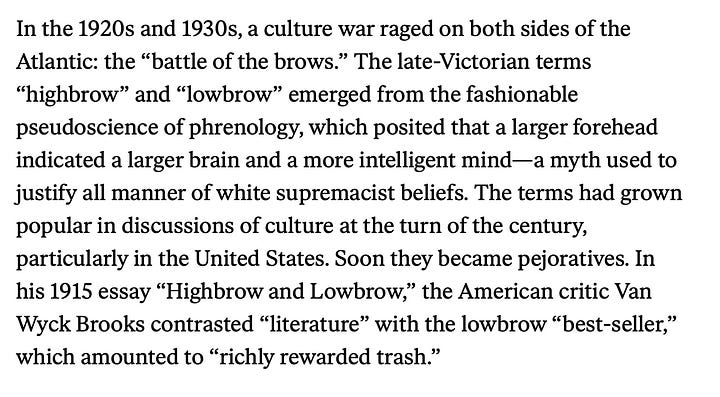
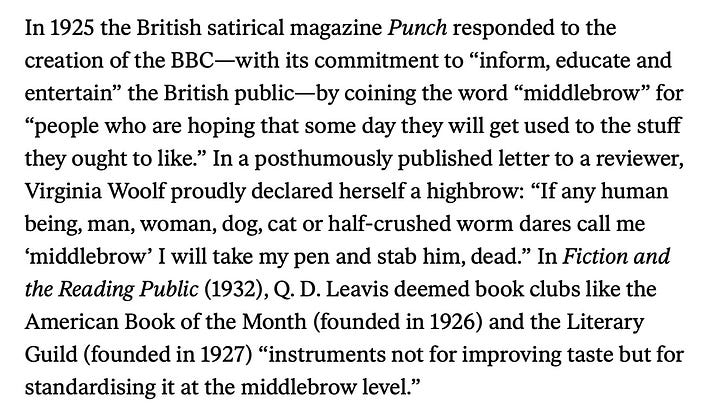
First of all, now that you know the source of “highbrow,” would you ever want to claim it? But I am especially interested in Virginia Woolf’s visceral reaction to “middlebrow.” Is it so terrible to be a person who aspires to have better taste but has to work at it? My 93-year-old mother has been availing herself of the musical performances at her continuing care community and she recently “confessed” to me that she doesn’t really get classical music. I told her that I also struggle, but I keep trying in part because of my affection for the late Terry Teachout, a polymath who loved everything from Puccini to Paddington 2. My mom and I both genuinely enjoy opera, although I lost the habit of attending operas when Baltimore’s company dissolved in the wake of the 2008 global financial crisis. Then again, I have an affinity for opera because of something distinctly middlebrow (Clyde Robert Bulla’s synopses of opera plots for children) and something indisputably lowbrow (an episode of “Gilligan’s Island.”)
It was my plan, when I began this entry, to quote loftily from Tolstoy’s “What is Art?” One problem: I just started reading it last week and it’s a lot longer than I realized, so I haven’t finished it yet. But how did I even know about “What is Art?” I learned about it 40-plus years ago when I bought a copy of Philip Roth’s Zuckerman Unbound from the remainder table at the Waldenbooks in a Waco, Texas mall; Alvin Pepler, Nathan Zuckerman’s stalker in the novel, claims Tolstoy’s work is the role model for his essay, which he’s keen for Zuckerman to read. The discovery of that Roth novel, at the low, low, low price of, probably, $1.994, shaped my my reading life as an adult. I became a Roth completist, but also someone who often learned about art from random references in other books.
And when I was in my 20s, I bought the books I could afford. From remainder tables, at secondhand stores, at library sales. I was a middlebrow kid from a middlebrow family, doing the best I could to assemble a decent library. I can now afford to shop retail, but I’m still intent on self-improvement. Sorry about my striver stink.
Then again, was anyone ever more of a striver than the Roth-like Nathan Zuckerman, who — I refer now to the version of Zuckerman who appears in the short stories at the beginning of My Life as a Man — was also in the diligent pursuit of a proper library, allowing himself to buy two books a week from the secondhand booksellers near the University of Chicago, a task so exciting that by the time he made his decision “I had to make use of the bookseller’s toilet facilities.”
He loved buying great books so much he had to take a shit.5
Well, I guess we’ve come full circle.
Read/Reading: The Arizona Triangle, Sydney Graves; Liars, Sarah Manguso; What is Art, Leo Tolstoy; The Winner, Teddy Wayne; Sandwich, Catherine Newman (audio); Ambition Monster, Jen Romolino (audio).
Re-read/Re-reading: Endless Love, Scott Spencer
Me, Me, Me: Prom Mom is nominated for the Strand Award, my sixth nomination for this prize. I’ve won the award three times6, but the sweetest victory was the time I tied with Megan Abbott.
More me: Lady in the Lake has now aired four episodes. The reviews have ranged widely; obviously, my favorite is this one from The Guardian. But the one I want to address here appeared in the New Yorker.
Some context: I don’t Google myself and I try not to read reviews. But because I did read the interviews that Natalie Portman, Moses Ingram and Alma Har’el gave before the show aired, Google News picks up a lot of Lady in the Lake coverage and pushes it through my feed and this particular review was at the top of the app when I opened it Sunday morning. (I check the weather, my WhatsApp groups, the New York Times Spelling Bee and Google News when I wake up, and in that order.) I skimmed a few graphs and then I came to a line that — quoting from memory because I’m never going to re-read this — asserted comparisons between Lady in the Lake and The Wire are “inescapable,” in part, because of my “onetime” marriage to The Wire showrunner.
Now I can think of several reasons reviewers might feel compelled to compare these two television shows: 1) Both are set in Baltimore 2) Both draw on well-known (and not so-well-known) Baltimore stories 3) Both have terrific performances from Wood Harris, which the review mentions 4) Both are interested in specific newspaper milieus, the mid-60s versus the death rattle of the mid- aughts.
But my marriage? I have no idea what my second marriage has to do with the television adaptation of Lady in the Lake. I have been a published novelist for almost 30 years, a career that has spanned two marriages and, since 2020, a very happy solo life. Is my career considered subordinate to my ex’s despite the fact that I wrote eight books before The Wire ever aired and have written 22 since? Is this a review or part of the GOP platform?
tl;dr: The patriarchy never sleeps. Ah well, it’s an excuse to re-up my premiere selfie.
This absolutely happened. I think the word was “asshole.”
Yup, this newsletter continues on its not-so-stealth mission to promote AVAM at every opportunity.
My physical media diet: London Review of Books, The Paris Review, The New Republic, Vanity Fair, Architectural Digest, Bon Appetit, and Vogue.
Guessing wildly, but the hardcover — which I still own — retailed for $10.95.
Apologies to my father, dead 10 years now.
Can I help it if straight-up facts sound like bragging?

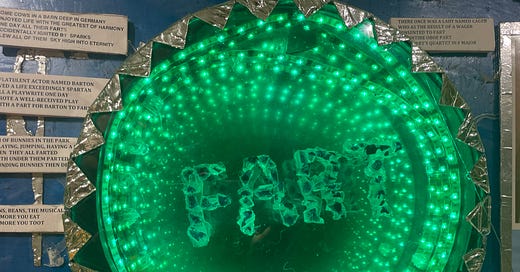



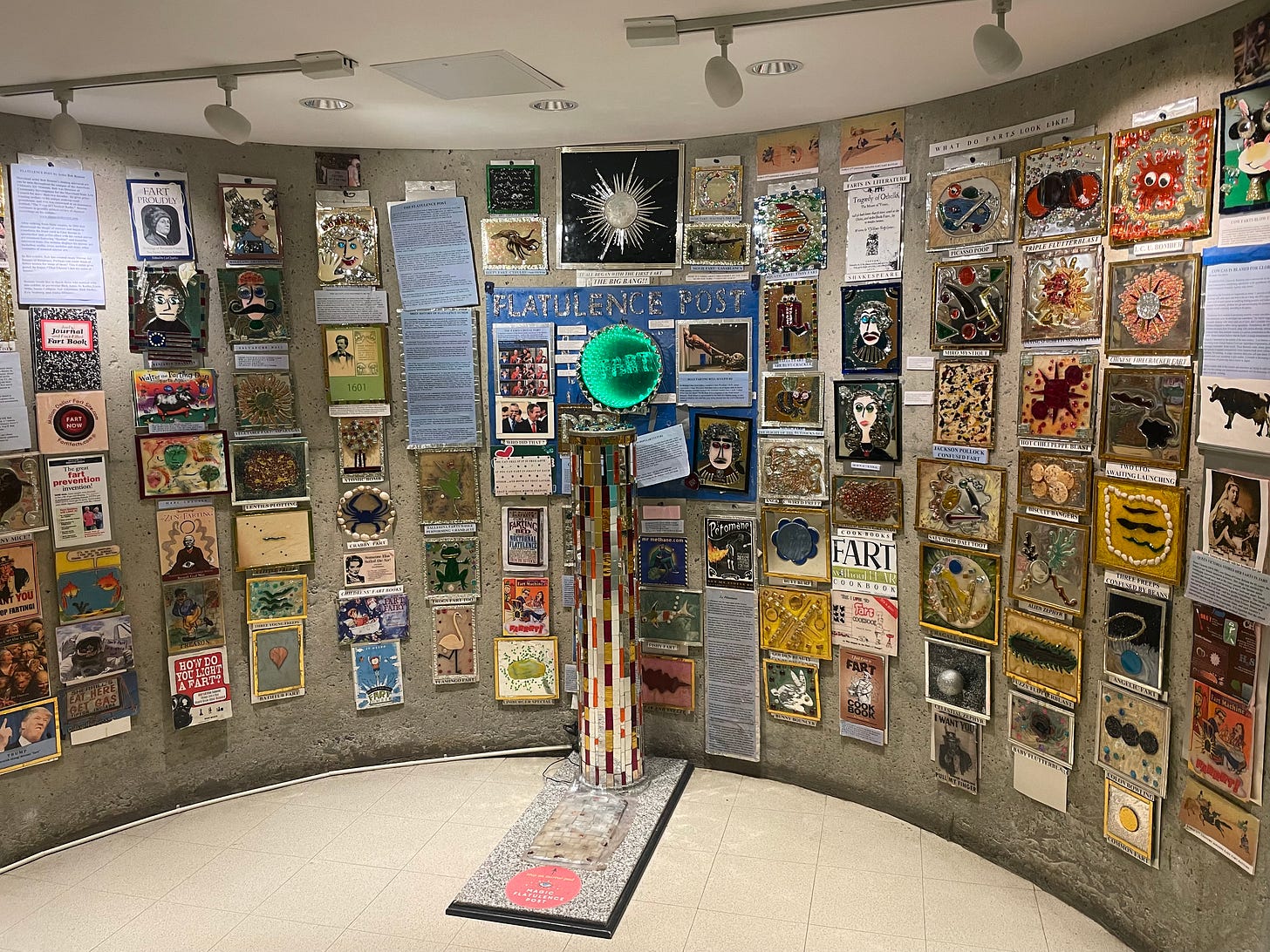


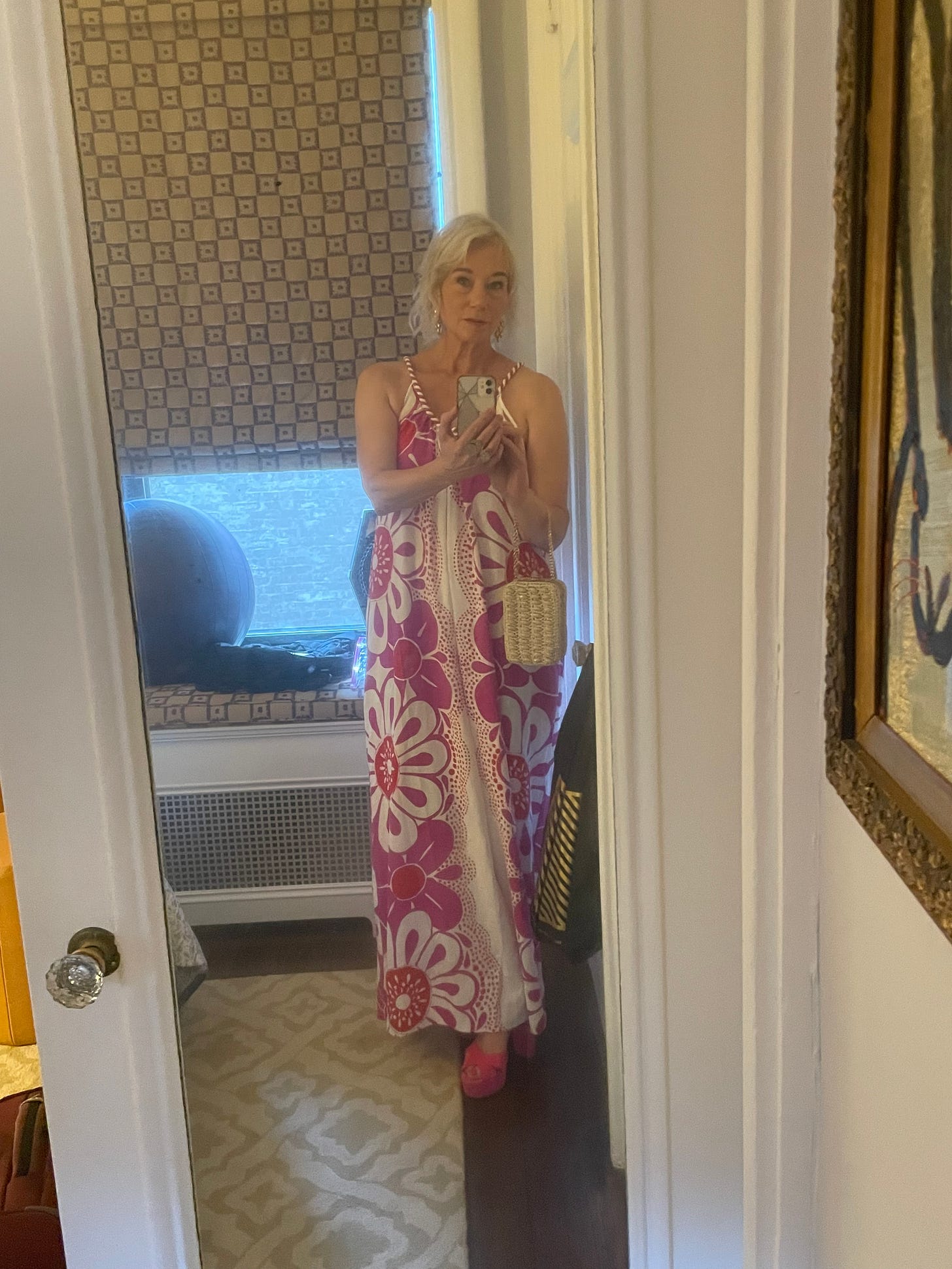
I'm over 70. My Fart Machine follows me everywhere I go. It's sooo embarrassing.
[# things nobody tells you when you're a kid]
Loved this, and gasped out loud at the reviewer’s comment about your marriage (apologies to your dad, but WTF). If being an author’s “completist” means reading all their books, I guess that makes me a Laura Lippman completist!